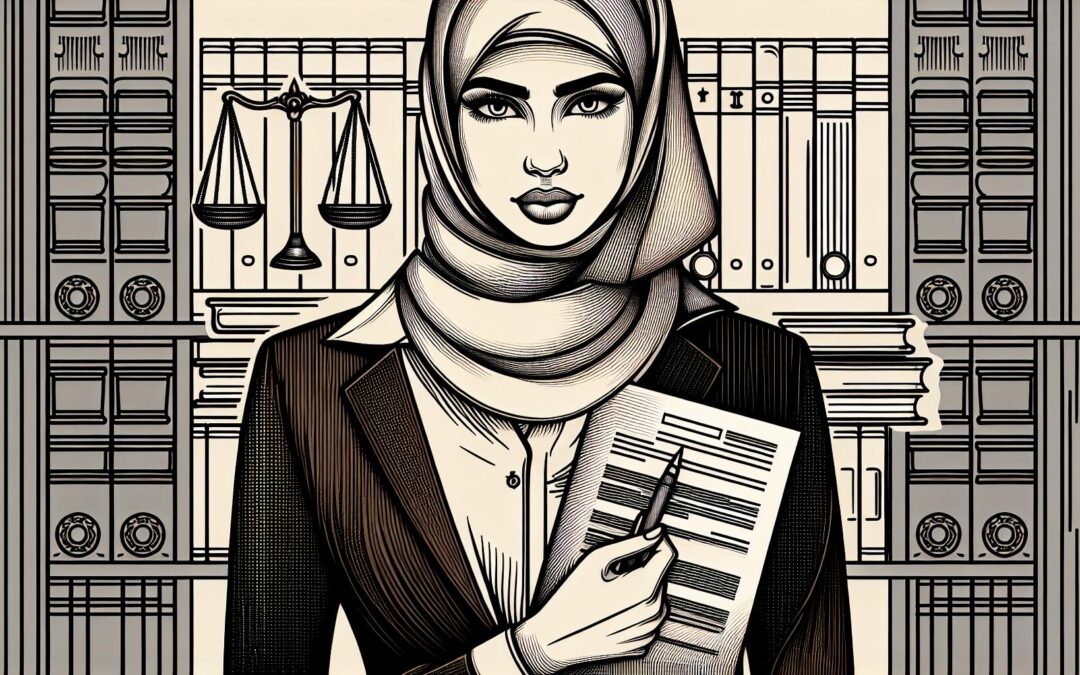Welcome to the ultimate guide on how to manage patent bar exam day jitters. If you’re preparing to take the patent bar exam, you may be experiencing some anxiety about the upcoming test. In this article, we will explore the patent bar exam, delve into the common causes of exam day jitters, and provide practical tips to help you manage your anxiety. Additionally, we will discuss the importance of adopting a positive mindset and examine when it may be necessary to seek professional help for severe anxiety. Let’s dive in!
Understanding the Patent Bar Exam
The patent bar exam is a comprehensive assessment that assesses a candidate’s knowledge and understanding of patent law and procedures. Administered by the United States Patent and Trademark Office (USPTO), this exam is a prerequisite for becoming a registered patent attorney or agent. To succeed on the patent bar exam, it is essential to have a firm grasp of the various legal principles, rules, and regulations surrounding patents.
Patent law is a specialized area of law that deals with the protection of inventions and intellectual property. It plays a crucial role in encouraging innovation and enabling inventors to profit from their creations. The patent bar exam is designed to ensure that individuals who wish to practice patent law have a thorough understanding of the complex legal framework governing patents.
What is the Patent Bar Exam?
The patent bar exam consists of multiple-choice questions that cover a wide range of intellectual property law topics. It evaluates candidates’ understanding of subjects such as patent eligibility, patent prosecution, and patent infringement. Passing the patent bar exam is crucial for individuals seeking to practice patent law and represent clients before the USPTO.
Patent eligibility is a fundamental concept in patent law. It determines whether an invention is eligible for patent protection. The patent bar exam tests candidates’ knowledge of the criteria for patent eligibility, including the requirements of novelty, usefulness, and non-obviousness. Understanding these criteria is essential for determining whether an invention meets the threshold for patentability.
Patent prosecution is another key area covered in the exam. It involves the process of obtaining a patent from the USPTO. Candidates are expected to demonstrate their understanding of the various steps involved in patent prosecution, including drafting patent applications, responding to office actions, and conducting interviews with patent examiners. Effective patent prosecution requires a combination of legal knowledge, technical expertise, and persuasive communication skills.
Furthermore, the patent bar exam assesses candidates’ knowledge of patent infringement. This involves the unauthorized use, manufacture, or sale of a patented invention. Candidates must demonstrate their understanding of the different types of patent infringement and the legal remedies available to patent holders. A thorough understanding of patent infringement is essential for effectively representing clients in patent litigation cases.
Importance of the Patent Bar Exam
The patent bar exam sets the standard for the level of expertise and knowledge required to practice patent law. It ensures that registered patent attorneys and agents possess the necessary qualifications to assist inventors and businesses in protecting their inventions and intellectual property rights. Additionally, passing the patent bar exam enhances your professional credibility and opens up new career opportunities in the field of patent law.
Patent law is a dynamic and evolving field, with constant updates and changes in legislation and case law. The patent bar exam serves as a means to stay updated and informed about the latest developments in patent law. It requires candidates to stay abreast of recent court decisions, changes in patent office procedures, and emerging trends in intellectual property protection. By passing the exam, individuals demonstrate their commitment to continuous learning and professional development in the field of patent law.
In conclusion, the patent bar exam is a rigorous assessment that evaluates a candidate’s understanding of patent law and procedures. It covers a wide range of topics, including patent eligibility, patent prosecution, and patent infringement. Passing the exam is essential for individuals seeking to practice patent law and represent clients before the USPTO. It not only demonstrates the necessary expertise and knowledge required in the field but also enhances professional credibility and opens up new career opportunities.
Common Causes of Exam Day Jitters
Now that we have a better understanding of the patent bar exam, let’s explore some common causes of exam day jitters.
Fear of Failure
One of the most prevalent causes of exam day jitters is the fear of failure. The patent bar exam is a rigorous test, and the stakes can feel incredibly high. The fear of not passing can lead to increased anxiety and stress.
Imagine spending months of dedicated study, sacrificing time and energy to prepare for the exam. The weight of expectations from yourself, your peers, and your mentors can feel overwhelming. The fear of not meeting these expectations can create a constant gnawing in the pit of your stomach, making it difficult to focus and perform at your best.
Furthermore, the fear of failure can stem from the consequences that come with not passing the exam. For aspiring patent attorneys, failing the patent bar exam can mean delaying or even derailing their legal career. The thought of having to start over, re-study, and re-take the exam can be disheartening and induce a sense of hopelessness.
Lack of Preparation
Another factor that contributes to exam day jitters is a lack of preparation. If you feel that you haven’t dedicated enough time or effort to studying for the exam, it’s natural to experience anxiety about your performance.
Picture yourself sitting at your desk, surrounded by piles of study materials. You glance at the clock and realize that time is slipping away faster than you anticipated. Doubts start to creep in, and you question whether you have covered all the necessary topics or practiced enough sample questions.
As the exam day approaches, the feeling of being underprepared intensifies. You may find yourself second-guessing your knowledge and worrying that you have missed crucial information. This lack of confidence in your preparation can fuel the jitters, making it difficult to trust in your abilities.
High Stakes Pressure
The patent bar exam is a significant milestone in a legal career. The pressure to perform well and meet expectations can create immense stress and apprehension.
Imagine the weight of the legal profession on your shoulders as you walk into the exam room. The patent bar exam is not just any test; it is a gateway to practicing patent law, a field known for its complexity and high standards. The pressure to excel and demonstrate your competence can feel suffocating.
Furthermore, the high stakes nature of the exam can be magnified by external factors. Perhaps your family has invested in your education, or you have taken a significant financial risk to pursue a career in law. The weight of these expectations can add an extra layer of stress, making the jitters even more pronounced.
In conclusion, fear of failure, lack of preparation, and high stakes pressure are common causes of exam day jitters for the patent bar exam. These factors can intertwine, creating a perfect storm of anxiety and stress. However, it’s important to remember that jitters are a natural response to a challenging situation. By acknowledging and addressing these causes, you can better manage your exam day jitters and approach the test with confidence.
Practical Tips to Manage Exam Anxiety
Don’t let exam day jitters derail your success. Here are some practical tips to help you manage your anxiety and perform your best on the patent bar exam.
Exam anxiety is a common experience for many individuals. The pressure to perform well can be overwhelming, but with the right strategies, you can overcome your anxiety and excel on your exam day. In addition to the tips mentioned above, here are a few more techniques that can help you manage exam anxiety:
Adequate Preparation
One of the best ways to combat exam day jitters is by ensuring you are adequately prepared. Develop a comprehensive study plan, review relevant materials, and take practice exams to build your confidence and familiarity with the content.
When you have a solid understanding of the subject matter, you will feel more confident and less anxious. Break down your study material into manageable chunks and create a schedule that allows for regular study sessions. This will help you stay organized and avoid last-minute cramming, which can contribute to anxiety.
Healthy Lifestyle Choices
Leading up to the exam, prioritize your well-being by adopting healthy lifestyle choices. Get enough sleep, eat nutritious meals, and engage in regular physical activity. Taking care of your body will help you maintain focus and reduce stress.
Make sure to establish a consistent sleep routine and aim for seven to eight hours of sleep each night. Avoid consuming excessive caffeine or sugary drinks, as they can contribute to restlessness and anxiety. Instead, opt for a balanced diet that includes fruits, vegetables, whole grains, and lean proteins.
Physical activity is also important for managing anxiety. Engaging in regular exercise, such as walking, jogging, or yoga, can help reduce stress levels and improve your overall mood. Consider incorporating a short workout routine into your study breaks to boost your energy and clear your mind.
Mindfulness and Relaxation Techniques
Consider incorporating mindfulness and relaxation techniques into your exam preparation routine. Deep breathing exercises, meditation, and visualization can all help calm your mind and alleviate anxiety.
Deep breathing exercises are simple yet effective techniques that can be done anywhere, anytime. Take a moment to inhale deeply through your nose, hold your breath for a few seconds, and exhale slowly through your mouth. Repeat this process several times, focusing on your breath and allowing yourself to relax.
Meditation is another powerful tool for managing anxiety. Find a quiet and comfortable space, close your eyes, and focus on your breath or a specific word or phrase. Allow any distracting thoughts to pass by without judgment and bring your attention back to your chosen focal point. Regular meditation practice can help train your mind to stay calm and centered, even in stressful situations.
Visualization involves creating a mental image of yourself successfully completing the exam. Imagine yourself feeling confident, focused, and in control. Visualize the entire process, from entering the exam room to answering each question with ease. This technique can help boost your self-belief and reduce anxiety.
Remember, managing exam anxiety is a journey that requires patience and practice. By implementing these practical tips and techniques, you can develop a strong foundation for success and perform your best on the patent bar exam.
The Role of Positive Mindset in Overcoming Jitters
Your mindset plays a crucial role in managing exam day jitters. Adopting a positive mindset can boost your confidence, enhance your performance, and alleviate anxiety. Let’s explore some strategies for cultivating a positive mindset.
The Power of Positive Thinking
Believe in yourself and your abilities. Replace negative thoughts with positive affirmations. Visualize yourself succeeding on the exam and overcoming any challenges that may arise.
Visualization Techniques for Success
Visualization is a powerful tool for building confidence and reducing anxiety. Take a few moments each day to imagine yourself answering questions correctly, feeling calm and focused during the exam, and ultimately passing the patent bar exam.
Seeking Professional Help for Severe Anxiety
While exam day jitters are normal, severe anxiety can negatively impact your performance and overall well-being. If anxiety becomes overwhelming or starts to interfere with your daily life, it may be necessary to seek professional help. Here are some considerations to keep in mind.
When to Seek Help
If your anxiety persists, intensifies, or begins to impact your ability to study or take care of yourself, it may be time to reach out to a mental health professional.
Types of Professional Help Available
There are various options available for individuals seeking professional help for severe anxiety. Consider consulting a therapist, counselor, or psychologist who specializes in anxiety disorders. They can provide you with strategies, techniques, and support tailored to your needs.
By implementing these strategies and maintaining a positive mindset, you can effectively manage patent bar exam day jitters. Remember, it is natural to feel anxious before a significant exam, but with proper preparation and self-care, you can conquer your fears and perform your best on the patent bar exam. Good luck!











